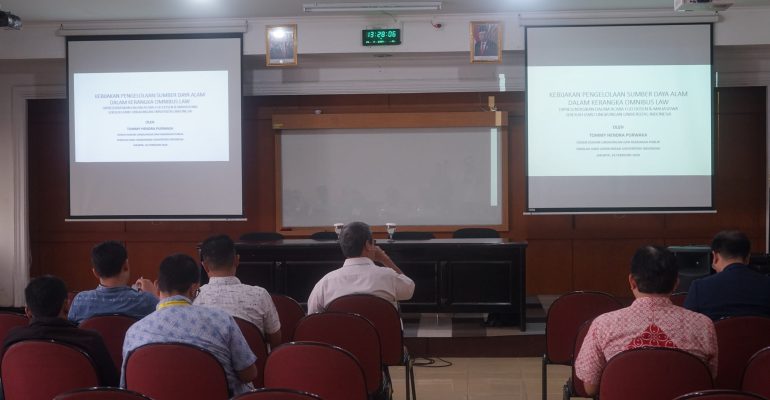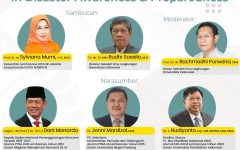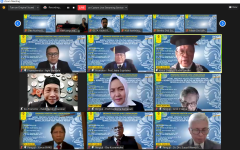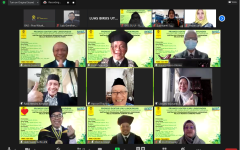FGD Omnibus Law
August 9, 2023 2024-12-21 17:17FGD Omnibus Law
On Wednesday, February 26, 2020 the School of Environmental Sciences held a Lecturer and Student FGD which discussed the Omnibus Law Policy in Natural Resource Management.
Omnibus Law is a bill that is still being debated by many people in Indonesia. In the FGD presented by Prof. Tommy Hendra Purwaka, S.H., L.LM., Ph.D, the Omnibus Law was analyzed using the Wormhole Theory because the Omnibus Law acts as a law proposed in the present to overcome the regulation of a number of legal provisions in various laws and regulations that overlap with each other in the past so that they can still be enforced in the future.
Omnibus itself comes from Latin and means “for everything” to anticipate technological disruption (industrial era 4.0), a very rapid change with the prime movers being blockchain technology, internet of things (IoT), artificial intelligence (AI), virtual reality (VR), and smart contracts.
According to Prof. Tommy Hendra Purwaka, the responses to the pros and cons of the Omnibus Law are both very good. However, according to him, the Omnibus Law needs to be postponed because the 100-day period given by President Jokowi to overhaul thousands of regulations is not possible.
In every law there must be public and private interests, therefore Prof. Tommy Hendra Purwaka stated that it is necessary to involve science and technology, law, and administration. In addition, it is also necessary to be integrated in the management of natural resources which includes physical, administrative, and geographical in order to achieve the objectives of the Act itself.
Considering the many pros and cons that occur in the community, the School of Environmental Science also feels the need to take part in improving MSMEs that are greatly affected by this Omnibus Law policy. The School of Environmental Science contributes by accelerating policy harmonization in natural resource management. In addition, universities need to take control to rationalize the Omnibus Law policy, especially related to investment. The principle of justice must still be prioritized, so that every policy must be seen downstream, whether it has positive or negative consequences for the life of the nation and state. The prosperity of the people referred to in Article 33 of the Constitution must also be accommodated in the Omnibus Law policy, so as not to harm the people in the future.
To minimize the occurrence of losses and debates in the community about the Omnibus Law, Prof. Tommy Hendra Purwaka believes that there needs to be assistance for guarantees for people who do not understand the law so that no one is harmed by the policy, besides that social media should also be used to mainstream environmental issues and policy socialization.
(Red Devina, Editor Tyas)








